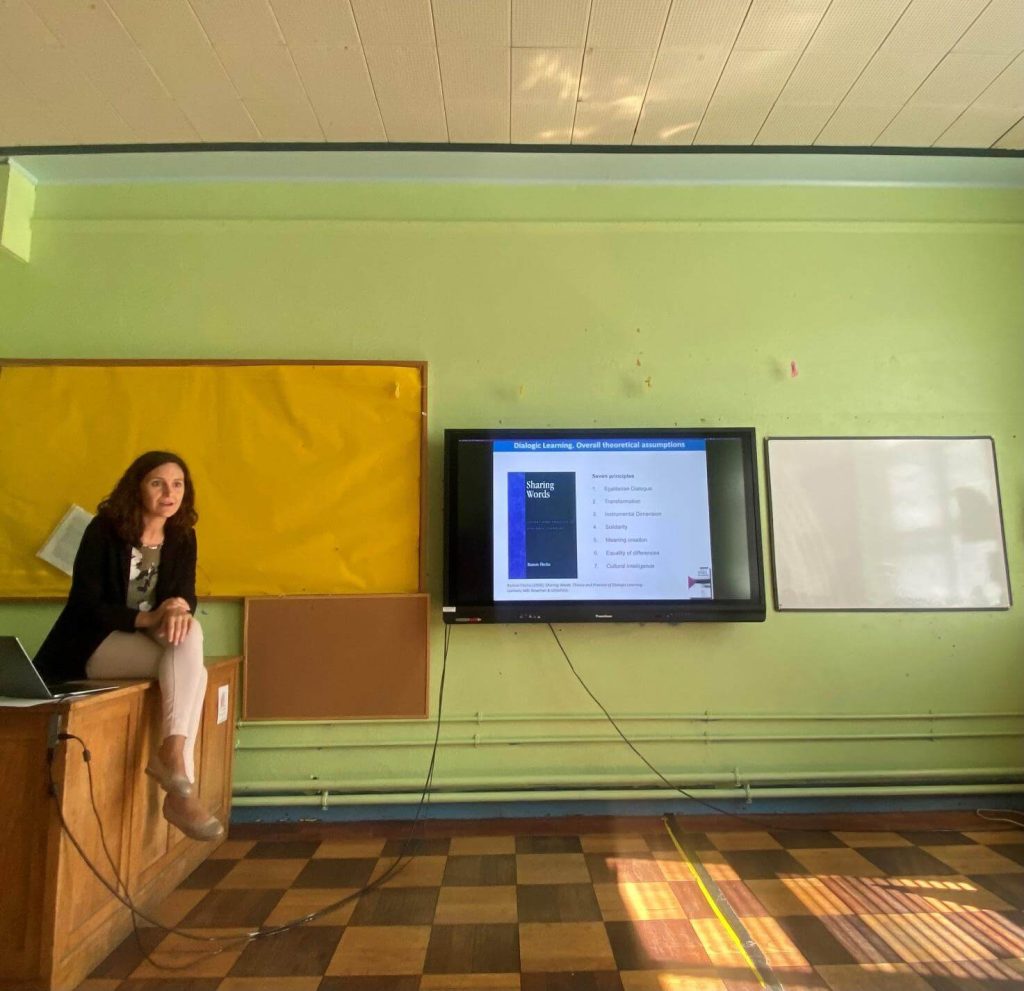A needs analysis included interviewing school representatives (children, staff, and caregivers) to identify their support needs. Based on this, it was decided that the focus should be on English language learning, group-working, and parental involvement in schools through interactive groups (IGs). After pre-training evaluations with children and staff, eight staff participated in training and REFUGE-ED staff supported the roll out of IGs in three classrooms. Once these groups were in place, priorities for mental health and psycho-social intervention were reviewed. Four staff received training on resilience and wellbeing from the IFRC PS Centre. These practices have since been implemented on an as-needs basis (e.g., when a child presents with emotional distress).
St. Joseph’s Christian Brothers’ School
Dublin, Ireland
Impact and successes
One school staff member remarked that the groups gave her the opportunity to provide individualised attention to a struggling student. She shared that this student was a refugee and within the group, she could give the child one-to-one attention, guidance, and encouragement which would have been impossible in the normal classroom. The same school staff member noted that the Interactive Groups (IGs) help her build connection with her students by making lessons more fun.
School staff believed that IGs were a time where students were more integrated in the classroom. One school staff member specifically described working with a student who was often socially isolated from their peers. The staff member described how she was concerned for the student but felt that the time during IGs was a time she knew that the student would be interacting with their peers.
School staff noticed the integration of children from the Autism Spectrum Disorder (ASD) class. One student from this class spoke of how the IGs were the first time he took part in activities with the other class involved in the project. School staff saw this integration as particularly important as some of the students from this classroom will advance to a new school in the coming academic year.
Overall, school staff reported multiple positive effects of students interacting in the groups. School staff shared observations of increased confidence and interactions between the students, with one school staff member noting that this change carried into other student interactions and reporting observing a change in behaviour when the students were in a recreational setting.
As the year progressed, staff noted that students became more willing to engage with the academic material discussed in the IGs. They felt that the variety that IGs offered supported this and taught the children to be open to new experiences which they feel is an important life skill. They noted that students made greater attempts to complete classwork and were able to consult with each other when they were challenged.
Teamwork
School staff spoke about the development of teamwork skills through IGs. Specifically, school staff described how the format of the IGs created a space where the students had to interact with each other, which stood in contrast to the normal classroom environment. Through this format, staff reported that students worked with students with whom they may not normally interact. In the groups, staff reported that students took on the roles of helping each other, which encouraged skill development that may not otherwise come naturally. Additionally, school staff reported seeing students apply the teamwork skills developed in IGs to other school settings.
Students also reflected on the teamwork element of IGs through reflection on conflict within group. Some students did not feel that conflict happened regularly, whereas other students described conflict which did not always have a resolution. One student found conflict to be related to the material in that conflict arose when students had different answers for the problems during the groups. Students also described finding ways to cope with conflict and to cope with working with students with whom they do not get along.
Collaboration
Staff identified working together as a key facilitator to the project. Staff also identified needing wider school buy-in which they felt would be facilitated by staff having a better understanding of the project.
Parental Involvement
School leadership reflected that they believed parents were happy with the project but that it had been a challenge to engage parents in the project. School staff indicated that it may be practically challenging for parents to engage with practices in the classroom due to parents’ other commitments, including work. School staff indicated, however, that the times where project staff spoke with parents in informal settings were largely positive and that more engagement could support the integration of parents into the project. Regarding parents’ involvement in the project, parents expressed interest in being a part of the classroom.
Lessons, learning and recommendations
Students reported enjoying participating in the IGs but indicated that integration remained a challenge, particularly when faced with language barriers, and expressed not feeling like the IGs created a change. School staff expressed seeing signs of integration through the project, including changes to how students interacted outside of the classroom. Staff also reported seeing changes in how students approached academic material and an openness amongst students to try new activities. Multiple staff members expressed the importance of the development of the social skills fostered by the IGs that may not otherwise be developed in the traditional class structure.
Key lessons include increased communication of key project points, a better understanding and integration of local context within the training sessions, more support in developing activities that best support students’ interactions, and a greater embeddedness of project staff into the school community.